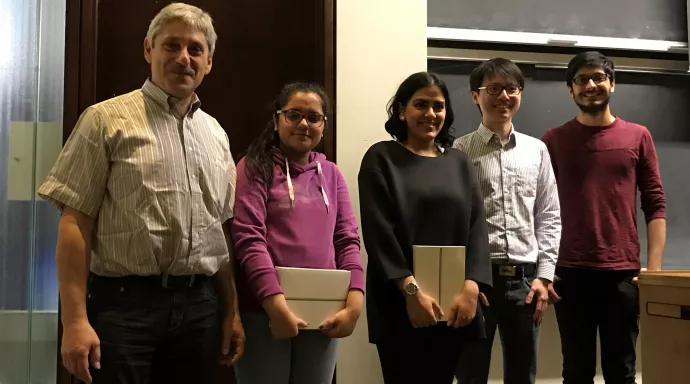
UTM STEM students come out on top during big data challenge
Using data-driven science to study the epidemiology of pathogens, UTM’s Master of Biotechnology student Arushi Sachdev, and her teammate Kerman Sekhon, a first-year biology student, beat out nine other teams at the STEM Fellowship Big Data Challenge, a competition where STEM students tackle real-world problems with data science tools.
“I was extremely grateful to participate in the Big Data Challenge as it helped me refine my data science skills and push me out of my comfort zone,” said Sachdev.
“It came as a complete surprise that Kerman and I won the competition. For a month, we worked diligently to put this project together, and it was nice to be recognized for our efforts.”
With the guidance of mentors from industry and academia, at the end of the competition, Sachdev and Sekhon produced a scholarly report that highlighted low vaccination rates in treating the Human papillomavirus (HPV) and presented their findings to a panel of judges.
HPV is a virus that is often responsible for a number of morbidities, such as genital warts, apogenital cancers and cervical cancer. Each year, 6.2 million people between the ages of 14 and 44 become infected with the virus.
In 2006 a three-dose vaccine, Gardasil, entered the market to limit HPV infection and transmission. Despite this, recent studies have indicated low adoption rates and low vaccination series completion rates.
Interested in improving vaccination rates, Sachdev and her teammate analyzed data collected by Johns Hopkins Medical Institutions to determine which females are at risk of low vaccination compliance and what strategies should be implemented to circumvent this problem.
“Findings revealed that certain female cohorts are at risk of incomplete vaccinations, such as Black females, females between the ages of 18-26 and females that visited urban clinics,” said Sachdev.
“In contrast, females that were treated by obstetrician-gynecologists had increased compliance with the Gardasil vaccination regimen.”
“These conclusions are not causal. However, they shed light on what female populations should be studied further and potentially targeted to improve Gardasil vaccination completion rates.”
